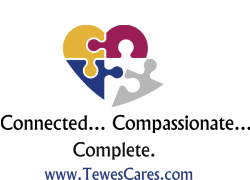|
If your adult child has cut off contact, you are not alone. An estimated 11% of parents are estranged from their adult kids. That's 1:8. But you wouldn't know it to hear others talk.
There is such a stigma around the issue that estranged parents rarely talk about it with others. Instead, they tend to cover things over. That means carrying around feelings of shame, guilt, and deep sadness, often in isolation. Sound familiar? Why do adult children sever the tie? There are myriad reasons. Two-thirds (67%) of estranged parents say they have never been told the reason why. On some level, perhaps the specific details of "why" are not material. In the end, it may be wise to simply conclude that everyone remembers family dynamics differently. Should you try to reconcile? Reconciliation involves both parties, although parents usually initiate the effort. Be flexible about the outcome. Estrangement may be the best outcome. The important part is how you process it. Begin with yourself. A child's rejection is not a measure of your worth as a person or a parent. Even fantastic parents go through periods when their children want nothing to do with them. Reach out to others so you have support. There are online and in-person groups for estranged parents. Talk with a counselor. What adult children say they want. Surveys indicate that children who have split away want to "be heard" and to have their parent apologize for past actions. Expressions can be as simple as a sincere "I'm sorry. I wish I had been more ______." Some also ask their parent to accept boundaries, such as a limit to the type or frequency of contact. Things to avoid. Don't issue repeated requests to meet. This can backfire: Your child may feel harassed. Try a light overture. If it is rebuffed, wait a significant time before trying again. If the door opens, prepare to just listen and empathize. "Correcting" them or stating your own feelings will likely bring everything to a halt. In fact, your child may never be open to hearing what it was like for you. And if those are the terms of reconciliation, you need to decide if that's okay with you. For some parents, it's simply not. The goal is healing. Ideally, the healing involves getting back together. If it doesn't, use your support system to help you get to a healthy resolution inside yourself. No more isolation. No more shame. Considering a reconciliation? We can help. Give us a call at 203-826-9206.
0 Comments
|
AuthorLeslie Alin Tewes is a Geriatric, Disability & Medical Care Manager; Elder and Adult Care Advocate; Quality Improvement Specialist. Archives
July 2024
Categories |



 RSS Feed
RSS Feed

